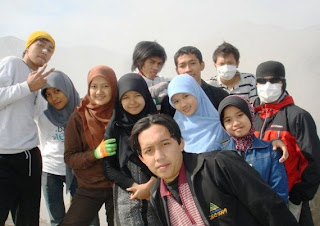I. RELEVANCE OF RESEARCH AND SCIENCE
Science is a business that is multi-dimensional, so it can be defined in
many ways and not raw. However science should be seen as a basic
(basic) human thinking process in carrying out various studies. For
science it may be associated with the method and the research process.
Relevance of the research to science, humans evolved from efforts to
find answers to questions like “What now?”; “What?”; “Why this?”; “Why
so?” And later evolved into the “how does it happen? “and” how to solve
it? ‘. With encouragement like to know the man has always wanted to gain
knowledge about the problems that she did not know that in the end
emerge new knowledge known as science (knowledgement) a systematic and
organized. By using the mind and the reflective mind, people were able
to solve the problem at hand.
The approach to scientific and non-scientific. Scientific approach
can be studies while non-scientific approach may be common sense,
prejudice, intuition, chance discovery / trial and error (trial and
error) and mendapau scientific authority / critical mind. Berdasakan
definition above, there is a close relationship between science and
research. The experts say that it is impossible to separate science
research and described as two sides of the same coin. Almack (1930) says
that research and science are the result and process. Research is the
process, while the result is a science. Whitney (1960) asserts that
science and research is an ongoing process together. This means that
science and research are the same process, while the result of the
process is the truth (truth). Truth is meant is knowledge of the truth
that is open to be tested by anyone who wants to test it.
With relevance / relationship may be mentioned various aspects of the
role of science and research so as to mention something that is done it
is a work of scholarship, such as;
1. Mencandra / Description / Specifies
This function seeks to describe or explain things that are at issue.
2. Describe / explanation
This function seeks to explain the conditions that underlie the emergence of problems or events.
3. Preparation Theory
This function is trying to formulate theories / principles / rules of
the relationship between the conditions / events with each other.
4. Forecasting / Prediction
This function is trying to hold the forecasts / predictions,
estimates and projections of the issues / events and the impact it will
have.
5. Control / Controling
This function is trying to take measures to control the problem / perstiwa / symptoms.
II. RELEVANCE TO HIGHER EDUCATION RESEARCH AND DEVELOPMENT OF NATIONAL
Higher Education as an institution of higher education need to carry out
research activities as the embodiment of the implementation of one of
three responsibilities: education and university teaching, research and
community service. Lecturer (faculty) as an important tool in academic
activities in universities have an obligation to carry three tasks.
In keeping with the development of science and technology, then the
teachers will be able maningkatkan abilities and skills through
research, both social and economic-based techniques. In addition to
increasing their own abilities and skills, to heighten the excitement of
academic life, students also received significant attention in the
research activities. Teachers share the responsibility in terms of
increasing desire, attitude, and skills students in conducting research.
One of the efforts that can be taken is to try to do your own
research means research conducted independently and in accordance degan
research ethics both by the faculty or college or with the involvement
of faculty and students. Research that can be done independently will be
able to improve the quality of the faculty and university. In the
framework of the effort, knowledge and skills of the faculty towards
research is necessary, particularly Research Methodology. His
association with increased fervor examining students is expected in all
courses that are taught there is one particular course of Research
Methodology. Through research, it is hoped will emerge new knowledge or
breakthroughs useful for universities and development of a nation.
In addition for the purposes of increasing the knowledge, ability and
skills of the researchers, one thing that is very important is the role
of research to the development of a nation. That is the meaning or
significance of a penelitiaan for the development of the nation. From
the literature and the media, it can be seen that there was no single
developed country in the world to succeed in development without the
support of research activities. There is a presumption (when viewed in
passing) that the research can only be done by developed countries. This
assumption is because they have the funds and researchers which is
sufficient but it turns out as many as 98% of the research in the world
is spent on penelitiaan-research in developing countries. The amount of
costs incurred for research not only be seen from the amount of money
and energy that is used but the most important are the benefits of such
research for the development of developing countries.
Especially for developing countries such as Indonesia, the role of
research in the history of nation-building is not in doubt. Through the
studies that have been done then any existing or potential problems
during the development process takes place can be known. Just a bunch of
research so that the information / data can be obtained relatively
complete.
Development planning should always be based on the data / information
obtained through research. It is very tidaka possible to plan the
construction without the use of reliable data. The results of the tests,
evaluations and reviews back development activities can only be known
when the research is conducted. Similarly, research plays an important
role in any decision-making or steps in all aspects of development.









